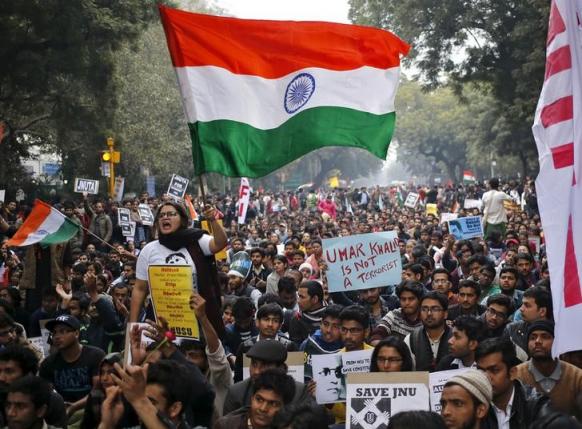
Indian teachers strike to protest student’s arrest
On Monday, Delhi police made headlines in prime-time news of noisy Indian news channels, and Hindi and English language dailies alike. The cops admitted to have played to the gallery to appease the hyper-nationalist religious extremists in demonising the free-thinking students of Jawaharlal Nehru University (JNU). They admitted to having neither proof nor witnesses of Kanhaiya Kumar raising anti-India slogans. The young man, president of the students’ union, who was arrested with two other friends, is facing a harsh media trial.
The other two, Umar Khalid and Anirban Bhattacharya, surrendered last Tuesday. The police, trying hard to find any link with Pakistani intelligence agencies, claim that their statements are contradictory. Delhi cops have claimed ‘foreign elements’ present at Guru’s anniversary event were covering their faces.
Presenting a report in the parliament 24 hours after a high-level committee was formed Minister for Human Resource Department Smriti Irani claimed that eight students were apparently guilty of sedition. Earlier, former cabinet minister P Chidambaram has questioned Guru’s role in Parliament attack.
Interestingly, the media and Delhi police portrayed Umar Khalid, a PhD candidate on life of tribals in Jharkhand state, as an Islamist, while his sister Kulsum Fatima claimed that as a self-proclaimed Marxist, he even questions the existence of God. “My brother and hundreds like him are questioning the state about the injustice being done, and the atrocities against Dalits and Muslims (in India). What is wrong with that,” a newspaper quoted her as saying.
Student politics
Since JNU’s establishment in 1970, All India Students' Association (AISA), affiliated to the Communist Party of India-Marxist-Leninist, has been popular. It has given many known leftist leaders to the country. With the rise of BJP in India in the 1990s it has been losing followers to right-wing Akhil Bharatiya Vidyarthi Parishad in its traditional stronghold.
Indian opposition raises concerns with Modi over student protests
Unlike Pakistan, university students in India participate in elections on campus each year. They jealously guard their rights and ideologies. Over the past two decades, hyper-nationalism and domination of Hindu identity of India have led to shrinking space for the other point of view, both in the public arena as well as on campuses.
The silver-lining for a free-thinking Indian has been the rise of the Aam Aadmi Party (AAP), which has not only encouraged open mindedness but also attempted to prove that politics can be clean and turn tide against the status quo.
The recent tremors originating from the JNU have caught the attention of academics globally from Cambridge to Yale and Columbia. “Yours is an institution with a great unblemished history, and today the eyes of the world are vigilantly watching for you to recover the trust of your students and faculty," wrote Director of the Humanities Center at Harvard University Homi K Bhabha to JNU Vice Chancellor Jagadesh Kumar.=
At the heart of the controversy is freedom of speech.
The calls for rights of Kashmiris are resonating inside mainland India far more passionately than in the recent past. The Modi government has directly and indirectly countered independent critical opinion within or in the cyber sphere with priority. The JNU saga goes to show that there are limits to the establishment’s control. The prime minister’s economic reforms won’t be acceptable to all segments of society without political rights of the oppressed, such as Kashmiris, the other Muslims and Dalits.
Dalits and Muslims: India’s favourites for the death penalty
If social media can be any guide, the JNU student leaders have already been romanticised as real life young heroes in Bollywood-driven India. For the leftists, it’s a struggle for a secular India, which has drifted far too close to Hindu nationalism. Kanhaiya Kumar and his clique come from lower middle class whom BJP’s Modi claims to represent and champion. Further rash handling of the affair can trigger similar protests in other universities of the capital as well as other cities.
For the same reasons, Professor Arthur Kleinman of Harvard University warned the university administration to brave the government pressure or be prepared for adverse consequences.
Naveed Ahmad is a Pakistani investigative journalist and academic with extensive reporting experience in the Middle East and North Africa. He is based in Doha and Istanbul. He tweets @naveed360













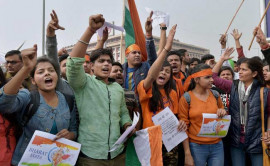
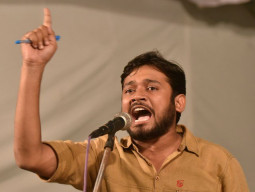


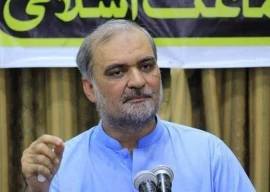

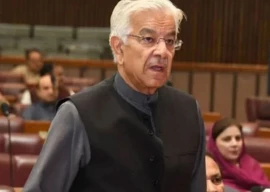
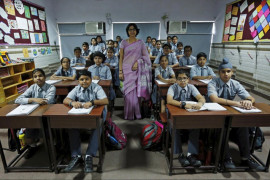
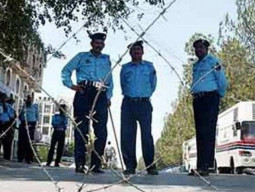










1714024018-0/ModiLara-(1)1714024018-0-270x192.webp)










COMMENTS (7)
Comments are moderated and generally will be posted if they are on-topic and not abusive.
For more information, please see our Comments FAQ